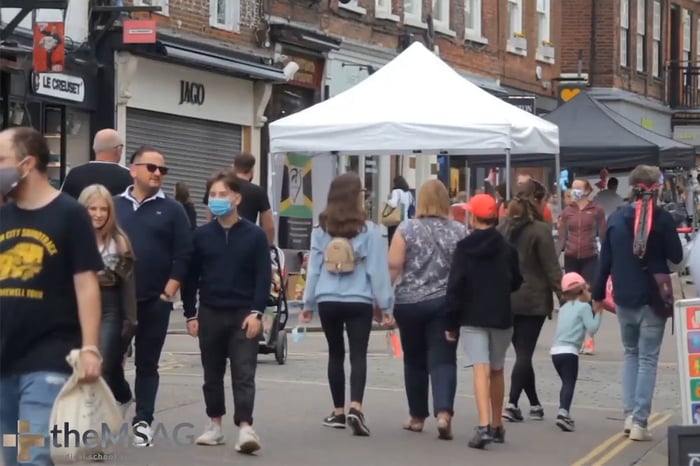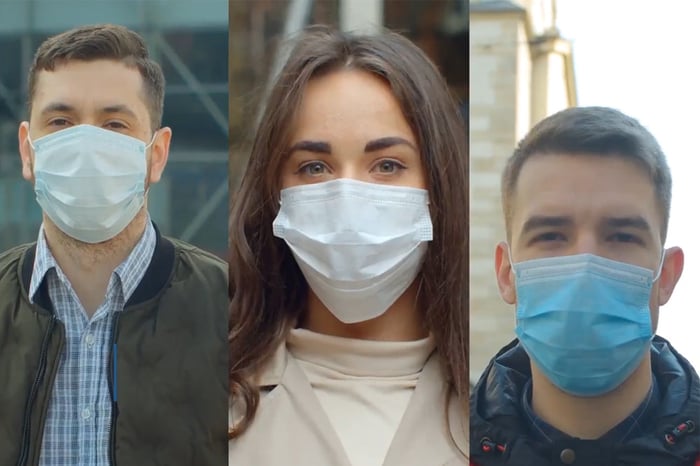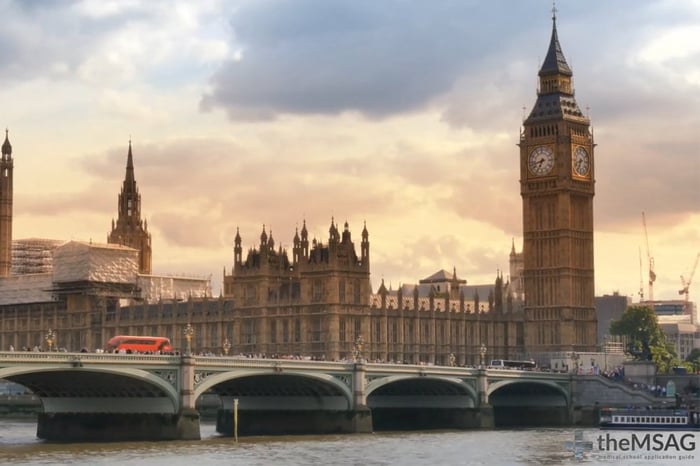
COVID-19 - Anti-Lockdown
We’re continuing to look at different perspectives on the handling of the COVID-19 pandemic: sure to be a common topic during your medical school interviews. Interviewers will be looking for your opinion on this topic, so it’s important that you understand all perspectives and can form a well-informed and balanced answer. Check out our live online interview course: an interactive eight-hour course that will teach you the fundamentals of answering medical school interview questions.
In our last blog, we examined the pro-lockdown arguments: that safety should be the utmost priority and the spread should be stopped by all means necessary. Here we will consider the contrasting viewpoint: that freedom, the right of movement and the right to work should be prioritised.
Freedom
There are many types of lockdowns and restrictions worldwide. Although restrictions have the aim of saving lives, there are still questions to ask and consider. Are ‘authoritarian-style’ lockdowns, involving significant restrictions on freedom of movement and huge economic and social impact, the best way to tackle the coronavirus in democratic states?
In a time of fear and uncertainty many people were deprived of their family when they needed them most. The elderly, vulnerable and those residing in care homes were especially affected by lockdown restrictions. In addition at the height of the pandemic hospital patients could not have visitors which caused significant distress to many.
In the UK, schools were closed from mid-March 2020 to all children except the most vulnerable and the children of key workers. Some age groups returned to school in June 2020, but a full return only happened in September 2020. Following a significant rise in cases at the end of the year schools did not reopen following the Christmas holidays. The Human Rights Act states that “no person shall be denied the right to education” and it also states that “everyone has the right to respect for his private and family life, his home and his correspondence”. Therefore, we must carefully consider the consequences of restrictions.
One of the most evident issues of restrictive measures is public compliance. Freedom of movement and civil liberties are deeply rooted values in many countries and such heavy restrictions on these freedoms are problematic. Many countries, such as Spain, France and the UK, had to apply a strict police presence to enforce restrictions.
Lockdowns can encourage mass movement
The second argument against lockdowns is that they can, in contradiction to their design, encourage the mass movement of people. The first major example of this was seen in Italy when the government placed one-quarter of the population into lockdown. Approximately 25,000 people quickly left the area and moved to parts of the country that had fewer restrictions. A policy that started out with the aim of trying to limit freedom of movement, in this case, actually encouraged a mass movement of people!
We live in a diverse and increasingly global world. Many people live and work in countries away from their home country or their family. National restrictions have caused difficulties for many people as countries have not worked together on their guidelines. National lockdowns across the world caused thousands of people to try and cross borders to get home and this caused mass crowding at airports, train stations and other border checkpoints.
Lockdowns are not sustainable
The third argument against lockdowns is that they are not a long term solution. Dr Tedros Ghebreyesus, the Director-General of the World Health Organisation, said in a statement that “So-called lockdowns enabled many countries to suppress transmission and take the pressure off their health systems. But lockdowns are not a long-term solution for any country.”
The Lancet medical journal published a paper explaining that lockdowns are not a sustainable strategy to manage COVID-19. The key issue is that immunity to coronaviruses is not long lasting and reinfection is possible. Therefore, “herd immunity” is not achievable with lockdown measures alone. After decades, no population in the world has herd immunity to diseases such as cholera, yellow fever, polio, measles, TB, malaria or plague. It is for this reason that lockdowns cannot be a long-term solution and are, at best, a way of ‘buying time’ before we can implement other more definitive measures such as a vaccine.
Another point to consider is that some disagree with lockdowns because they believe that other measures are more effective and less restrictive. The Lancet article discussed above, recommends that the most important response is a robust system for testing, tracing, and isolating people. It also suggests that an alternative to lockdown could be finding other ways to reduce social interaction. An example of this was pioneered in New Zealand where social interactions were reduced to a few repeated contacts thus creating social bubbles. This allowed interaction whilst reducing transmission.
The ethical argument against lockdown
In our previous blog we argued that prioritising safety is the morally correct thing to do. In your interview it is important that you can discuss contrasting viewpoints when faced with questions regarding topical issues or ethics.
Many have questioned whether the implementation of lockdowns during the COVID-19 pandemic has been ethical? Although the aim of lockdowns is to protect people, they potentially have harmful consequences. Dr Alberto Giubilini, a Senior Research Fellow at the University of Oxford, outlines these in his paper published in The Spectator. He argues that lockdowns will inflict more harm on society than perhaps any other measure in our peacetime history and that this damage may not be ethically justified. He referenced the fact that during the first lockdown thousands of cancer patients were untreated, two-thirds of adults with mental health issues reported a deterioration of their condition and that the number of suicides and attempted suicides surged up 68% from 2019.
He also mentioned the damage to the economy in the UK. The UK is in the largest recession on record and he argues that recessions have a huge impact on public health, chronic disease outcomes, and mortality.
Some skeptics ask, is it wise or fair to enforce radical limits on the freedom of a population with no visible end in sight? Thousands of lives may be saved, but at the cost of millions of young people sacrificing their prospects.
Anti-lockdown movement
Several anti-lockdown protests took place in the UK following the national lockdown in April 2020. There were further protests in September 2020 with the establishment of local lockdowns, in response to the second wave of virus cases in the United Kingdom.
The United States has handled the pandemic differently to the UK and has not imposed long-term national lockdowns in the same way. Former President Donald Trump said the following in a press briefing at the White House: “It’s important for all Americans to recognize that a permanent lockdown is not a viable path toward producing the result that you want, or certainly not a viable path forward, and would ultimately inflict more harm than it would prevent.”. Donald Trump is a highly influential politician and, whether you agree or disagree, it is useful to think about his view that a national lockdown would inflict more harm than it would prevent.
Summary
We have explored several arguments presented by those against stringent measures such as lockdowns and social distancing in response to the COVID 19 pandemic. You do not have to agree with these arguments but it is important that you are aware of them. It is crucial that you give a balanced answer when discussing hot topics in your interview. Many of the points presented here have strong counter-arguments from those who feel that stricter measures are essential to protect the most vulnerable in society and to save lives. Some students can feel apprehensive at the thought of discussing these complex issues at an interview. The best way to overcome this fear and improve your technique is to practice in an interview setting. theMSAG delivers tailored mock panel interviews and mock MMI circuits to help you prepare for interviews.



